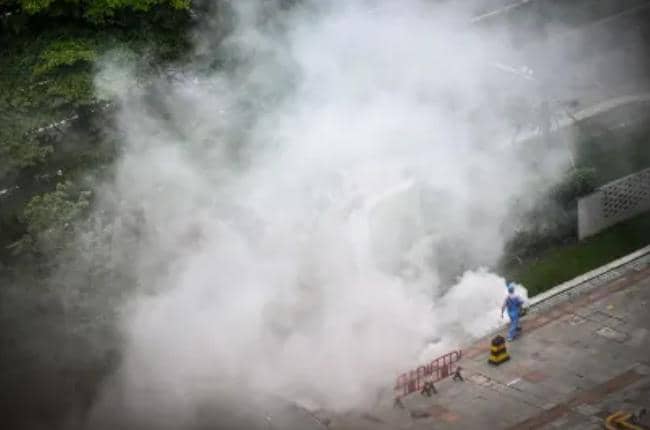(DDM) – Chinese authorities are stepping up an unprecedented fight against the mosquito-borne chikungunya virus, which has infected thousands in the country’s south.
DDM gathered that more than 7,000 cases have been recorded as of Wednesday, with the epicentre in Foshan, a major manufacturing hub in Guangdong province, located about 170 kilometres from Hong Kong.
Experts say the outbreak appears to be the largest ever documented in China.
Cesar Lopez-Camacho of the University of Oxford noted that chikungunya has never before been established in mainland China, leaving most of the population without immunity and allowing the virus to spread quickly.
The illness, transmitted through infected mosquitoes, causes fever, severe joint pain, and in some cases, long-term complications.
Authorities have rolled out extensive control measures, including spraying insecticides across city streets, residential areas, construction sites, and offices before entry.
State television footage has shown workers in protective gear targeting mosquito breeding grounds with chemicals and placing nets in high-risk zones.
Unusually heavy rainfall and high temperatures have worsened the crisis, creating ideal conditions for mosquito breeding.
In response, authorities have deployed drones to detect standing water — a primary breeding site for mosquitoes.
The crackdown also includes strict penalties for residents who fail to eliminate stagnant water from outdoor containers.
Those found non-compliant face fines of up to 10,000 yuan (approximately $1,400) and risk having their electricity supply cut off.
The United States has issued a travel advisory urging its citizens to take extra precautions when visiting Guangdong province, as well as Bolivia and several island nations in the Indian Ocean that are also experiencing outbreaks.
Drawing from lessons learned since the 2003 SARS epidemic and the COVID-19 pandemic, Chinese authorities have enforced mandatory hospital stays of at least one week for confirmed chikungunya patients in Foshan.
Although a two-week home quarantine was initially imposed, it was later dropped after confirmation that the virus cannot be transmitted directly between people.
Innovative, and unusual, control methods have also emerged, including the use of fish to eat mosquito larvae and larger mosquito species to prey on virus-carrying mosquitoes.
At the national level, officials have held emergency meetings and implemented coordinated protocols to prevent further spread and avoid public criticism.
This outbreak highlights China’s determination to maintain a zero-tolerance approach to infectious diseases, even for viruses without human-to-human transmission, as it seeks to safeguard public health and international reputation.







